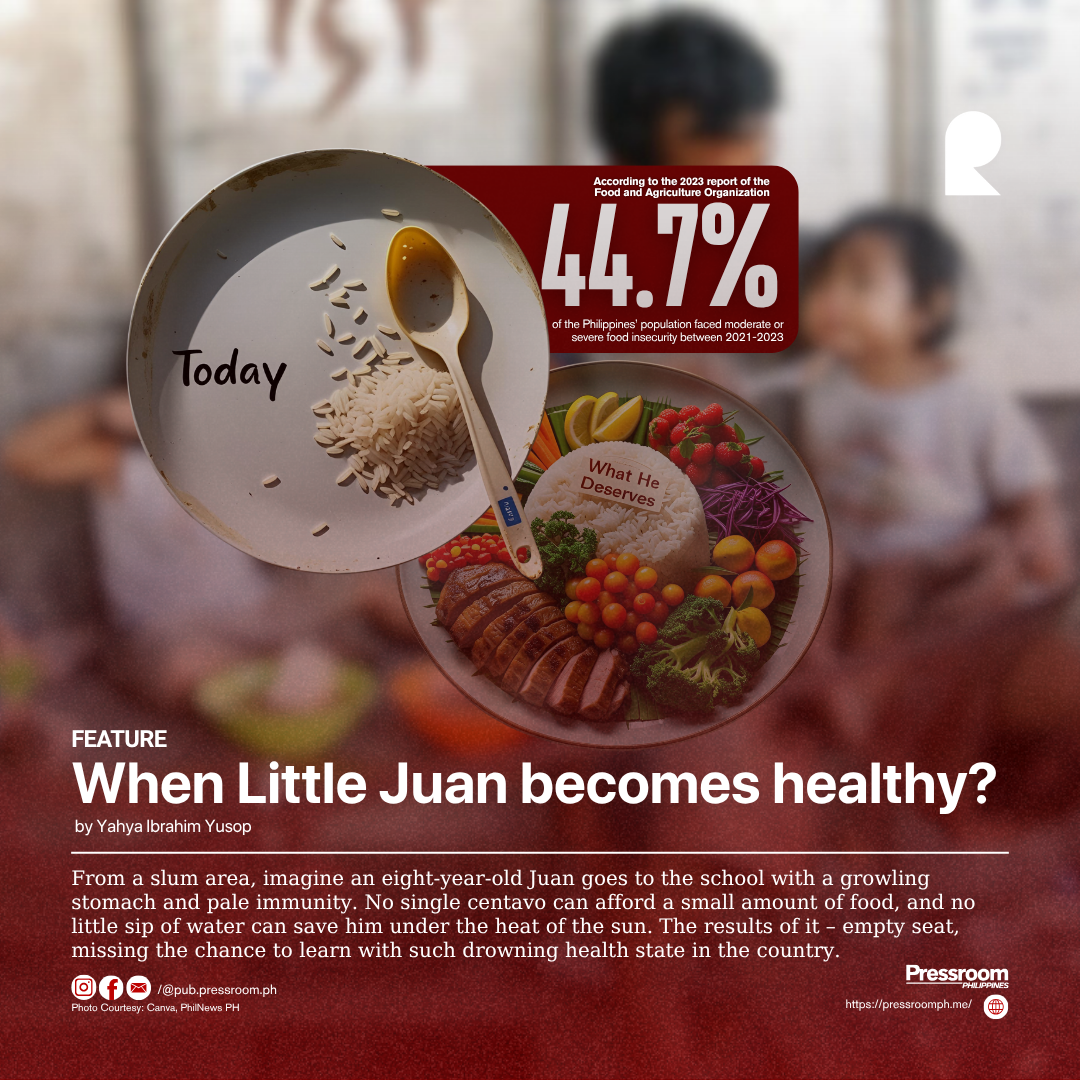𝘃𝗶𝗮 𝗧𝗿𝗶𝘅𝗶𝗮 𝗣𝗼𝗹𝗶𝗰𝗮𝗿𝗽𝗶𝗼, 𝗣𝗿𝗲𝘀𝘀𝗿𝗼𝗼𝗺 𝗣𝗛
When we first step into the University of the Philippines, we are taught that honor and excellence are more than just words. They are principles meant to shape our journey. These values should guide not only our academic pursuits but also our leadership, friendships, and personal relationships. Whether in the classroom, student councils, organizations, workplaces, or even simply in the way we treat others, honor and excellence is meant to remind us that even our small actions, done with intention, have the power to shape a better society and connect to something greater than ourselves.
Yet, for some, these words have become hollow; they are repeated in speeches, displayed on campus banners, and printed on diplomas, but they do not always translate into ethical behavior.
This July, graduating students will march, their names called alongside the Latin honors they have earned. These distinctions are rewarding, but they do not tell the full story of a student’s journey. Many will graduate without honors: working students who struggled financially, those battling mental or physical health challenges, and others carrying burdens beyond their academic workload. Their character, however, has been deeply molded, tested, and transformed by the realities they have faced.
On the other hand, some remain insulated by privilege, whether in class or in gender. They see their grades and Latin honors as the ultimate measure of success. But is academic achievement alone enough?
Beyond Grades: What Do We Applaud?
This is not to dismiss the years of academic effort—the sleepless nights, the juggling of commitments, the race against deadlines. We all know how hard we work for our grades, and Latin honors reflect that labor. But as we celebrate these milestones, we’re also called to reflect: What do we truly admire in the people we see on stage?
Honor and excellence go beyond what’s written in our transcripts. They live in how the ideas we’ve wrestled with—inside the classroom and on the page—have shaped our conscience, our compassion, and our clarity. In the humanities, especially in the College of Arts and Letters, we unpack systems like patriarchy—how it begins at home, is normalized in institutions, and inflicts real harm both subtly and blatantly. The real measure of learning is not the tally of recitations or final grades, but whether those theories have transformed how we see the world and how we choose to move through it.
Take cheating, for example. It has become disturbingly common, and despite knowing it is wrong, many have come to accept it as normal. What we often fail to recognize is that this behavior reflects a form of patriarchal entitlement—the belief that one can lie, deceive, and hurt others without facing consequences. I experienced this myself when someone I trusted and admired, a fellow student from the same college who studied the same theories on ethics and social justice, chose to be unfaithful. It was not just a personal betrayal but also a betrayal of the values we were taught to uphold. The experience made me confront a difficult truth: that even our most intimate relationships are shaped by the larger, harmful systems we grow up in—and that these systems must be called out, questioned, and dismantled.
A psychology study argues that cheating is not just about sexual gratification but about masculine validation. Many men engage in infidelity not because they seek variety but because they feel inadequate in their primary relationships. They turn to affairs not just, or not always, for physical pleasure but to restore their sense of masculinity, seeking emotional affirmation when they feel they are failing as husbands or romantic partners (walker).
This contradicts the assumption that men cheat out of confidence or dominance. In reality, men who cheat are often insecure, outsourcing validation rather than confronting their fears within their committed relationships. Patriarchy teaches men to suppress emotions yet expects them to be emotionally available in romantic partnerships. This contradiction leads them to seek external relationships to compensate for their perceived shortcomings, reinforcing a cycle of deception and entitlement.
Cheating as a Systematic Issue
The same mindset that allows men to justify cheating, manipulate emotions, and dismiss accountability is the same logic that drives politicians to deceive, corporation heads and stakeholders to exploit, and partners, husbands, and fathers to be mentally, emotionally, or physically abusive.
Patriarchy conditions men to seek power and validation at the expense of others, reinforcing harm across relationships and institutions.
Some of these men were once students like us, from the same university, earning the same degrees, and even celebrated for graduating with the highest honors we strive for, yet they serve as proof that academic excellence alone does not equate to ethical integrity. Without accountability, honor becomes hollow, and excellence loses its meaning.
One might think cheating is a stretch for this argument, but it is not. Cheating is not a trivial mistake.
It has real consequences on mental health. In the Philippines, mental health services remain severely underfunded, with less than one mental health worker per 100,000 Filipinos. This means that victims of emotional betrayal often navigate their trauma alone, without professional support.
Research indicates that it can lead to severe mental health consequences, including symptoms similar to post-traumatic stress disorder (PTSD): insomnia, anxiety, loss of appetite, and prolonged emotional distress. The 2021 Young Adult Fertility and Sexuality Study (YAFS5) found that suicidal thoughts and attempts among Filipino youth have more than doubled since 2013. In 2020 alone, suicide rates in the Philippines increased by 57.3 percent, highlighting the growing mental health crisis. While various factors contribute to mental health struggles, relationship-related distress can possibly be one of them.
A study published in the American Journal of Preventive Medicine found that one in five suicide deaths is linked to problems with current or former intimate partners, including breakups, conflicts, and intimate partner violence. Individuals experiencing relationship-related distress were found to have 2.1 times the odds of having a depressed mood and 2.7 times the odds of having a history of suicidal thoughts. These findings reinforce that emotional infidelity is not just a private issue. It is a form of harm with devastating effects on a person’s well-being. In a society where mental health support remains inaccessible for many, integrity and kindness are free yet powerful ways to prevent unnecessary suffering.
Why Calling This Out Matters?
Calling out cheating should not be shameful. When we dismiss it as a private matter, we ignore its ties to broader systems of harm. Cheating, rooted in patriarchal entitlement, reflects a culture of manipulation and unchecked power. On the other hand, honor and excellence are not just academic achievements. They are principles that should shape how we treat others and uphold integrity in all aspects of life. If we truly believe in these values, we must challenge harmful patterns, not just in our studies but in the way we live beyond the university.
Graduating from UP is not about being the most intelligent person; it is about being a better person.
No one is asking anyone to be perfect, only to be decent. If your only redemption for past wrongs is the glory of your Latin honors at your graduation, then that is truly tragic. It is tragic to be remembered only for numbers when you could be remembered as a good and respectful partner, a true friend, or an ally in the fight for safe spaces.
As we graduate, we must ask ourselves, what will be our legacy? Honor and excellence should not end at academic achievement but be reflected in the way we treat others and the integrity we carry forward. Because in the end, what matters is not just what we learned but how we lived it.

.png)




